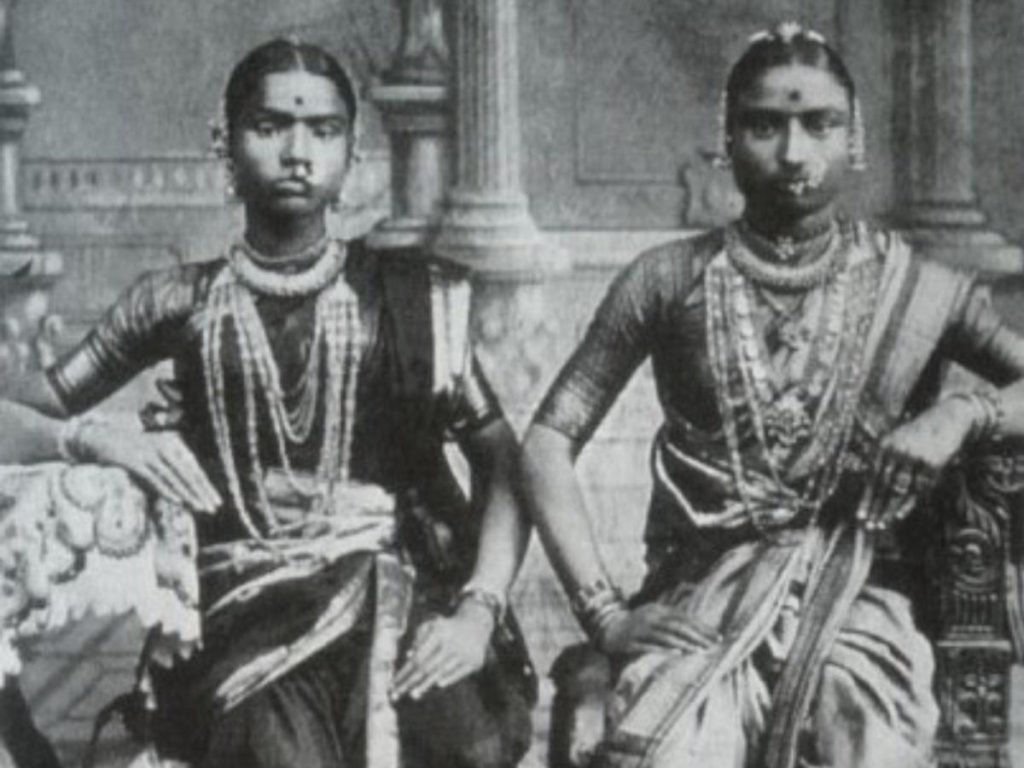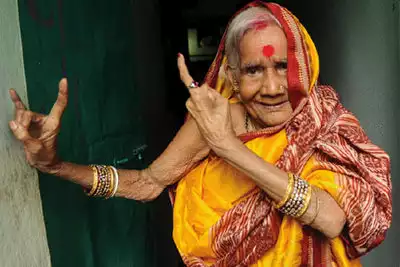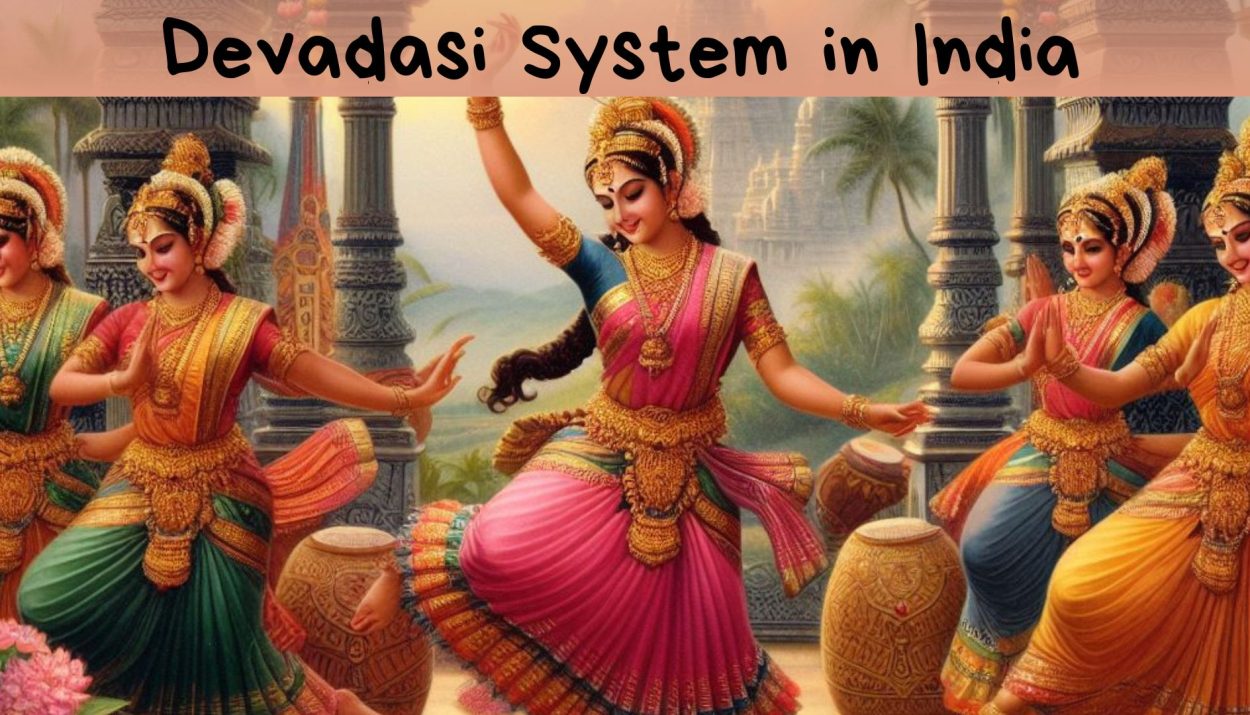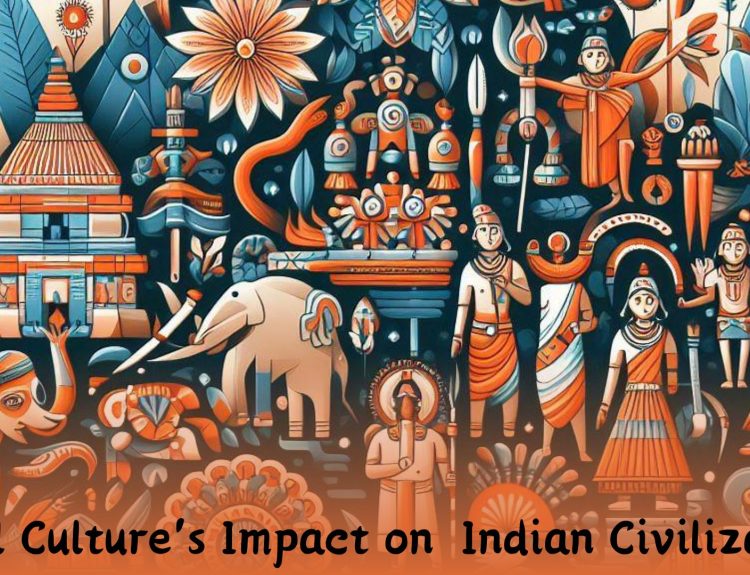In the rich tapestry of Indian culture, the Devadasi system emerges as a unique and intricate thread, weaving together elements of dance, spirituality, and tradition. While this system is often misunderstood or oversimplified, it has played a significant role in India’s cultural history. In this article, we delve into the concept of Devadasis, exploring its historical origins, practices, and the lasting cultural impact it has left.
The Devadasi system was a traditional religious practice in India, primarily observed in South India, where young girls were dedicated to serving in temples as dancers and musicians. These girls, often dedicated to the temples before reaching puberty, danced to appease and entertain deities, priests, zamindars, and higher-caste males, enduring sexual exploitation “in the name of God.” Unfortunately, they were denied inheritance rights, the freedom to marry, and other fundamental rights guaranteed by the Indian Constitution.
The Historical Origins of the Devadasi System
The Devadasi system can be traced back over a thousand years to ancient India, with its origins primarily in the southern regions during the reigns of the Cholas, Cheras, and Pandyas. The term “Devadasi” itself is composed of “deva,” meaning God, and “dasi,” meaning servant. Devadasis were essentially the “servants of God.” Following a symbolic union with a deity, they assumed responsibilities in the temples, including maintaining cleanliness, lighting lamps, and adorning the deities. These temple dancers were dedicated to serving deities through music and dance, and they played a vital role in the temple’s religious rituals, enhancing the spiritual experience of devotees. Devadasis received training from a young age in classical Indian dance and music.

The Cultural Impact of Devadasis
The Devadasi system left a profound cultural impact on India. It contributed significantly to the development and preservation of classical Indian dance forms, including Bharatanatyam, Kuchipudi, and Odissi, which have gained international recognition, owing much of their heritage to the Devadasi tradition.
Deeply rooted in religious and artistic traditions, the Devadasi system had a profound influence on the lives of women in ancient India. Originally, Devadasis held an esteemed position within society, receiving training in various art forms like dance, music, and poetry. They played a vital role in conducting temple rituals, serving as intermediaries connecting the human and divine realms.
Read- The Ultimate Journey of Widow Burning in India
However, this religious tradition faced a decline in the medieval period, primarily due to the widespread destruction of temples. Consequently, the social standing of Devadasis diminished. Faced with financial hardships, some turned to becoming mistresses of the affluent and powerful, resulting in a form of religious prostitution that persists today. Devadasis found themselves exploited by the wealthy and upper-class individuals, trapped by economic difficulties.

Devadasis subjected thousands of women to a life marked by exploitation and destitution, relying on affluent men within their communities in exchange for sexual favours. Regrettably, despite the Indian government’s 1988 ban on this practice, these women and their families continued to struggle independently, trapped in a relentless cycle of poverty and exploitation. It’s important to note that the devadasi system, despite legal and social initiatives, may persist in certain regions due to deeply ingrained cultural beliefs and socio-economic factors.
Conclusion
Today, the Devadasi tradition has evolved and adapted to changing social norms. Many efforts have been made to preserve the cultural heritage of the Devadasis while addressing the issues of exploitation and discrimination that were historically associated with the system.
References
THE ANDHRA PRADESH DEVDASIS (PROHIBITION OF DEDICATION) ACT, 1988
How ‘Devadasi’ System Continues To Be A Problematic Tradition In Indian Society
Why Devdasi system is still continuing in India?
Decades after ban, Devadasi system lives on surreptitiously in Karnataka







